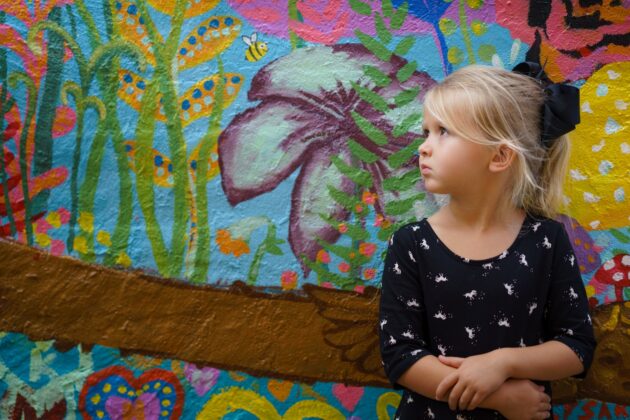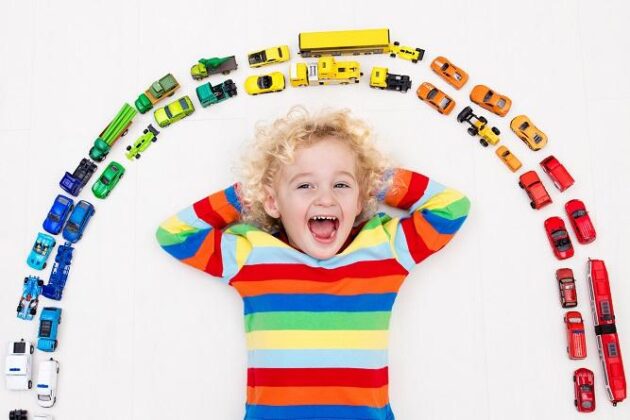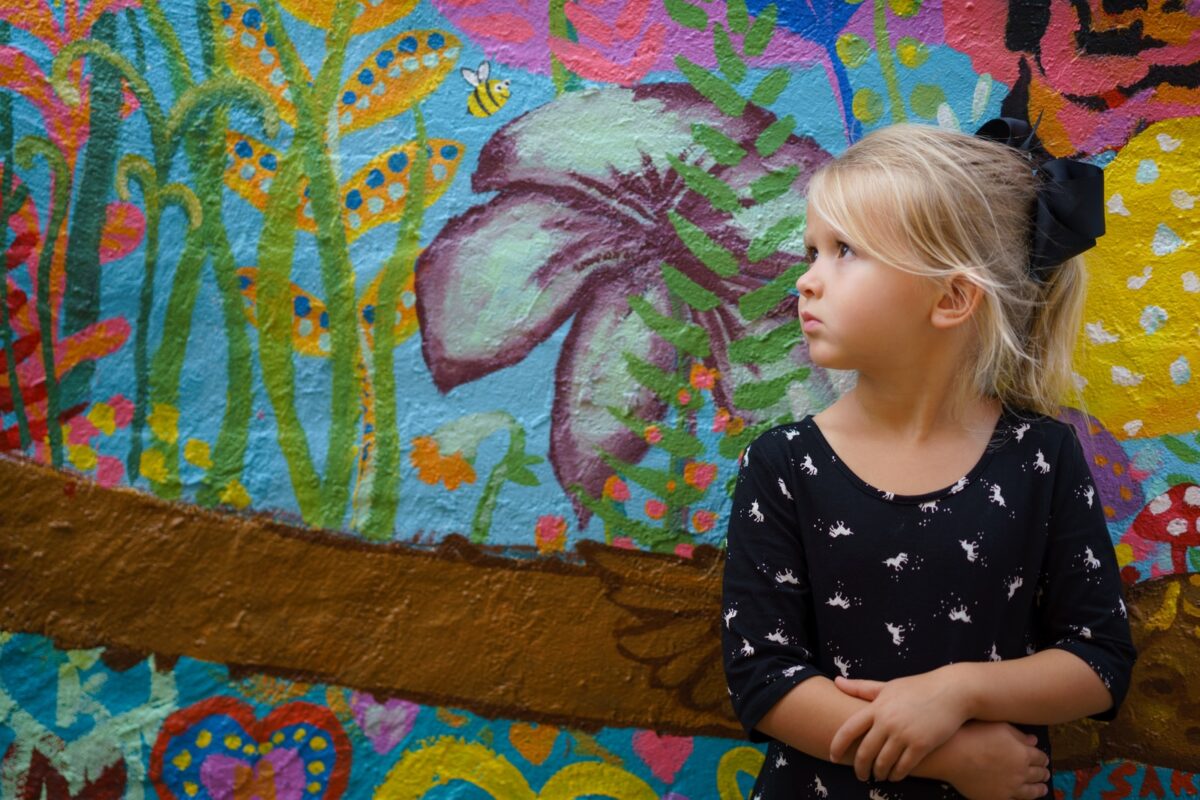Our daughter Sophie* was diagnosed in March 2020 with Autism Spectrum Disorder. It was something that came as a huge shock to us – but now, looking back, I realise the signs were all there, even down to her stims (which are movements which she uses to self regulate her emotions or if she is needing some sensory stimulation).

There was little to no eye contact and she did not respond to her name. She spun wheels repeatedly for a good twenty minutes, hardly smiled unless the television was on, no words, could not follow my point, would not acknowledge that someone had entered the house and would get up and leave if I joined in with her play. She had no purposeful or creative play, never passed me a toy or brought anything to show me. At the time Errol* and I put everything down to our personalities and it wasn’t until ‘pointing’ was on the plunket checklist that the word autism popped up on my google search. I completely dismissed the idea until our family came to me with their own concerns.
Although I was very accepting of Sophie’s* diagnosis, I was also extremely upset. I was grieving for the world I once knew and I feared the future. What did autism mean for us as a family, what did autism mean for Sophie* growing up and for her future?
A year down the track I now realise I was a little naïve with the hope of what life would be like. We have had a super challenging year and continue to learn how best to support Sophie*.
Sophie* will be three this month and is still pretty much non-verbal apart from the occasional counting or letter. We spend our days making choices on her behalf and other times guessing what her needs or wants are, much like you would with a baby. She never learnt to point as a natural form of communication and it upsets me knowing that she has so many words and thoughts stuck in that amazing brain of hers. The frustrations and anger around this are shown throughout the day and meltdowns are a common theme, some of which we have no idea what has set her off.
Angry meltdowns, screaming, grunting are common in our house (we are lucky we have understanding neighbours!) and as a stay at home mum, it is hard to know how to manage these and also to stay composed. I feel broken at times and in the midst of one of many of my own emotional breakdowns – the words “I can’t do this anymore” are spoken out loud. It is without a doubt one of the toughest, loneliest, emotional journeys I have ever experienced – I’ve never cried so much!
Outings for us are questionable. Difficulty with routines and understanding processes can lead to a meltdown even before we have walked out the door. For example, if I go back to grab my keys or water bottle, we have a meltdown as, in her mind, it means we are not going out anymore.
We do manage the playground and more recently the beach, which she loves – but apart from those two experiences we tend to do a lot at home. (The toy shop does very well out of us due to this!) Being a stay at home mum also means that I can take her places when it is quieter or less busy like Chipmunks during school hours, which does help, but even then I know when it is time to go.
Mundane activities such as the supermarket or shopping for essentials can be a nightmare from the moment we walk in the shop so for certain things we either don’t take Sophie* or ensure both of us are there so one can remove her from the situation if required. If we have new people over I usually find myself having to manage a conversation with tradies over the screams from Sophie* on the floor. The truth is it is not Sophie’s* fault, it is not behavioural, it is something out of her control. It has taken me some time to get my head around this and to adjust my traditional parenting style for one that fits her needs and situation better, but I feel we are making progress together.
Sleeping issues are common with autistic children. This unfortunately can contribute to how she deals with certain situations due to lack of sleep – just to add another challenge to the list. Struggling to get to sleep for up to three hours, waking up anytime from midnight through till 4 am and being awake for three hours with bouts of stimming are all part of this journey. In saying this we are so thankful that her stims are happy ones, as for other children on the spectrum they can be harmful.

Of course, it’s not all doom and gloom. Sophie’s* personality is really shining and she is such a gentle gorgeous human. We have amazing moments and wonderful parts of the day together and I have been able to see the difference in our beautiful girl over the past year. She has been attending therapy for a few sessions a week and the progress is phenomenal. She is now engaged in activities, shares eye contact, is very tactile with us, smiles loads more, is learning to play functionally and is able to ask for help non verbally.

Being so little with so many challenges already in life has been hard on her and all I hope for her future is that there is more support out there for autistic children and more awareness and acceptance within our communities. The dream for myself as a parent of an autistic child is that one day I will hear Sophie* say, “Mummy.”
Finally, the biggest learning for me so far out of all of this has been that while we have felt so blessed to have Sophie* enter our world it was actually we who needed to enter hers.
*Names have been changed
Please share so others can discover The BFD.

